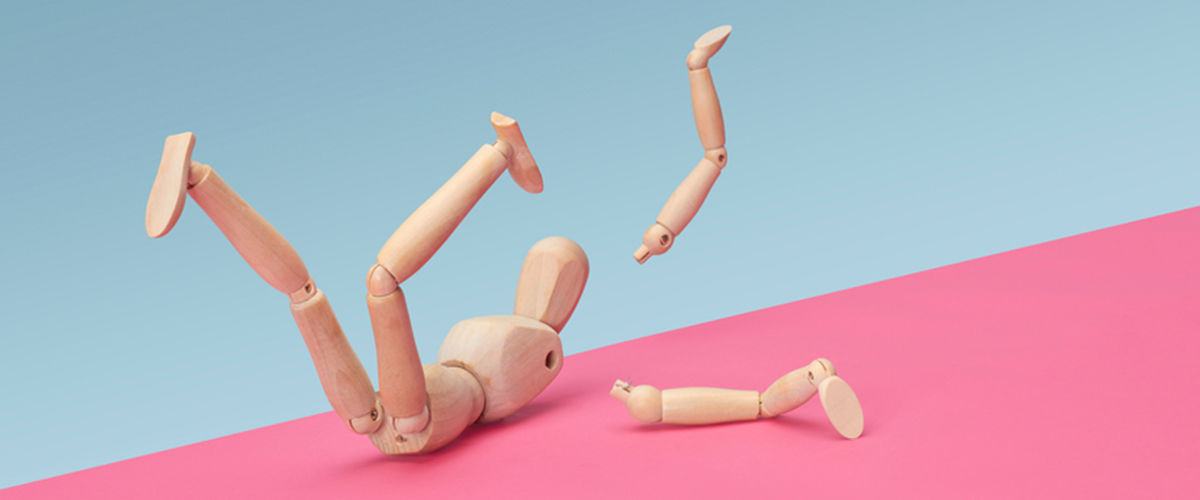
Let's look after our bones...
Bone health might not get the same air time as gut health, but looking after your bones is crucial for optimal well-being. Bone mass peaks in your 30's and gradually dwindles with age, increasing the risk of osteoporosis, with women more likely than men to suffer from the condition. There’s no time like the present to take action – here the experts share their golden rules on boosting bone health for a stronger, more resilient body...
Look To Calcium
In an era of alternative milk mania, the belief that cow’s milk is critical for building strong bones may seem a little outdated. However, there may be something to it, according to leading London nutritionist Lily Soutter. “Dairy products are a top source of calcium and are crucial for strong bones. The bio-availability of cow’s milk is greater than some plant-based sources such as spinach, so if you are following a plant-based diet, or cutting out dairy, be sure to eat plenty of green, leafy vegetables, tofu, legumes and tahini,” she says.
The best sources of calcium for non-plant-based eaters include cheese, yogurt and oily fish. The amount of calcium you need changes throughout your life, but adults should aim for around 700mg every day (a little more if you are breastfeeding or a smoker), which you should be able to get through eating a balanced diet.
Think About Oestrogen
As Rebecca Rohrer, clinical fellow for Bupa UK, explains, oestrogen plays a vital role in protecting bone strength. “Women have lower levels of oestrogen as they get older, losing bone mass quickly in the first few years after the menopause. Women are more at risk of osteoporosis than men, particularly if the menopause begins early (before the age of 45). If you have osteoporosis, it doesn’t mean your bones will definitely fracture, it just means it’s more likely.” From your forties, eating soya-based foods could also help to counter some of the negative effects of the menopause by naturally boosting oestrogen levels – try to incorporate more tofu, soy milk, miso, tempeh and edamame beans in your diet.
Stay Active
No surprise here, but staying active is crucial to maintaining strong bones, whatever your age. “Weight-bearing activity that forces your body to work against gravity plays a really important role in building healthy bones – this includes exercises such as walking, running and sports like tennis,” says Soutter. Rohrer agrees, adding those who lead a sedentary lifestyle have a higher risk of osteoporosis. Her top tip? “Aim for a total of 150 minutes of moderately intensive activity each week, including two strength training sessions. The stronger your muscles are, the more likely you’ll be able to maintain your balance and reduce your risk of falls, too.” Research shows HIIT could be particularly beneficial for bones – one study found women who did 60-120 seconds a day of weight-bearing HIIT, including jumps and skips, had 4% better bone density than those who did less than one minute. Those who did more than two minutes of HIIT daily had 6% stronger bones.
Avoid Fad Diets
By your late twenties, you will have reached peak bone mass, and from then levels decline, unless you take action. Significantly cutting calories and food groups could wreak havoc with your bones, so be wary of fad diets or an eating plan that seems particularly restrictive. As Soutter explains, “Any extreme diet which doesn’t contain adequate nutrients will affect bone mass. Low body weight can also increase the risk of bone fragility and fracture, while excessive exercise can interfere with your periods, which may also affect oestrogen levels, and in turn, bone mass.”
Boost Vitamin Intake
Vitamin D is another part of the bone health puzzle. This is because vitamin D assists with the absorption of calcium from food, playing a vital role in forming resilient bones. We tend not to get vitamin D from food, unless it’s been added (you can find it in some fortified milks, cereals and eggs), so supplementation is necessary. “The Department of Health advises Britons to supplement with 10mcg of vitamin D between October to April, whilst those over the age of 65, as well as those pregnant or breastfeeding, should supplement year-round,” says Soutter. Don’t forget vitamin K, either, low levels of which have been linked to osteoporosis and lower bone mass. Fill your plate with plenty of dark green leafy vegetables, as well as fish and meat to increase intake.
Cut Back On Alcohol
Dr Rohrer believes there’s a strong link between alcohol intake and the health of your skeleton: “Drinking more than three units a day can increase your risk of osteoporosis. Drinking heavily can also increase your risk of having a fall, serving up a double threat against our bones.” Studies have also suggested excessive alcohol intake interferes with the absorption of bone-boosting calcium and vitamin D, as well as oestrogen levels, which can negatively impact bone density.
Consider Omegas
NHS GP Toni Hazell says women should up their intake of omega-3-rich foods to supercharge bone health. Fatty acids help your body absorb fat-soluble vitamins, such as D and K, which are essential for a healthy body. Interestingly, NASA-sponsored studies have found fatty acids found specifically in fish oil may also play a role in mitigating bone breakdown that occurs during spaceflight as well as in osteoporosis. Even if you’re not a space traveller, you can still get the benefits by eating plenty of oily fish (aim for two portions per week), including trout, mackerel, salmon and sardines, for stronger, happier bones.
The Transforme Blog and its materials are not intended to treat, diagnose, cure or prevent any disease. All material on The Transforme Blog is provided for information purpose only. Always seek the advice of your physician or a qualified healthcare provider for any questions you have regarding a medical condition, and before taking supplements and undertaking any diet, exercise or other health-related programs.
